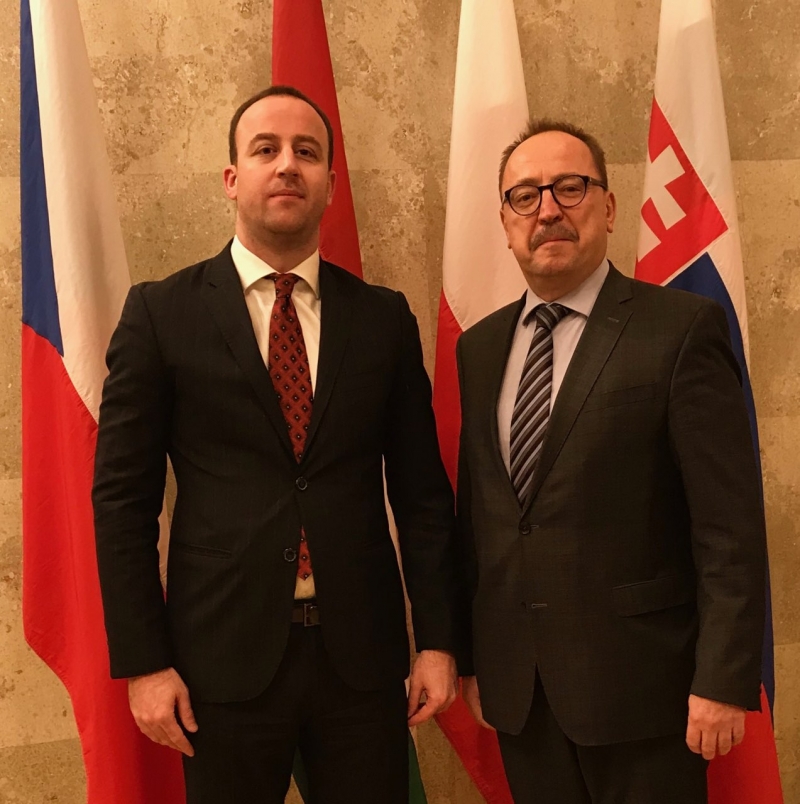Chairperson of the Committee on International Relations and Emigrants Mr Andrija Nikolić participated in the Meeting of the Foreign Affairs Committees of the Visegrad Group - V4 (Hungary, Poland, Slovakia and the Czech Republic) and the countries of the Western Balkans, chaired by Chairperson of the Foreign Affairs Committee of the Hungarian National Assembly Mr Zsolt Németh.
The Meeting was dedicated to the topic: “Stability of the Western Balkans - Perspective of the European Integration Process”, and within the main debate, the address was also given by Chairperson of the Committee Mr Andrija Nikolić.
The meeting in Budapest was also attended by Ambassador of Montenegro to the Republic of Hungary H.E. Mr Aleksandar Moštrokol.
Address by Chairperson of the Committee on International Relations and Emigrants Mr Andrija Nikolić:
Dear Mr Nemet,
Distinguished members of parliaments of the Visegrád Four and of the Western Balkans countries,
Allow me to thank you for including the topics of stability and perspective of the European integration process of the Western Balkans countries among the priorities of the current Hungarian presidency of the Visegrád Four.
Today we have the privilege to discuss with our colleagues from Hungary, Poland, the Czech Republic, and Slovakia the EU enlargement policy and how that process reflects on the stability of our region and the entire Europe.
I come from Montenegro, a new NATO member and frontrunner among the EU candidate countries, with 30 open chapters and three provisionally closed chapters. The Montenegrin example clearly shows that both the stability and the European integration of the Western Balkans are tangible and achievable.
However, allow me to caution about a occurrence that the first pages of the great European and global conflicts were written precisely in the Balkans, which, even today represents a turf for the overspill of various political and strategic interests, but also of unsophisticated and dangerous methods in the attempts to fulfil them.
Therefore it is necessary for us to promote the idea of the European integration more strongly, in order to make it more vital and relevant. We in Montenegro consider the new energy in politics to be a key for the long-term sustainability of the European Unity, but also for boosting enthusiasm about the integration of the Western Balkans countries.
Integration, as a bedrock of the Montenegrin state policy, has shown to be the best framework for the maturement and development of our society. The validity of the conviction that the way to the European quality of life is through adopting the European values was authenticated by the citizens of Montenegro.
We will complete the initiated reforms and all obligations from the European integration process, but, at the same time, it is important for our neighbours that the European Union increases its presence in the Western Balkans countries, because that is a necessary precondition of its further development.
In the end, I believe that even the future actions of the Visegrád Four will be aimed at keeping the principle of valuing individual merits of candidate countries, and that the EU enlargement to the Western Balkans countries would remain high on the agenda of the upcoming meetings of the Visegrád Four.












